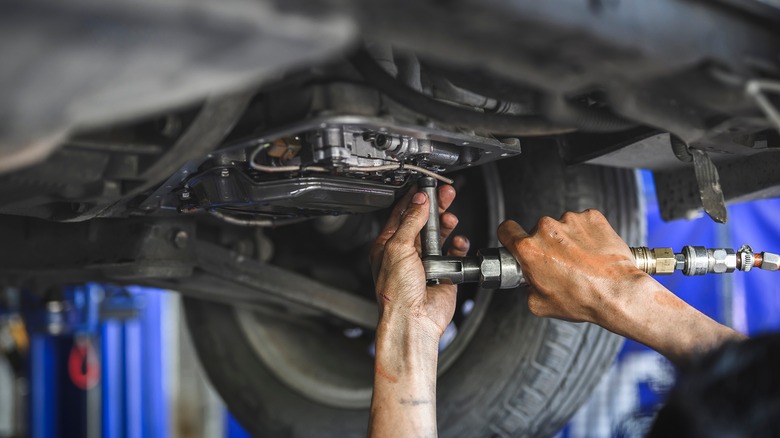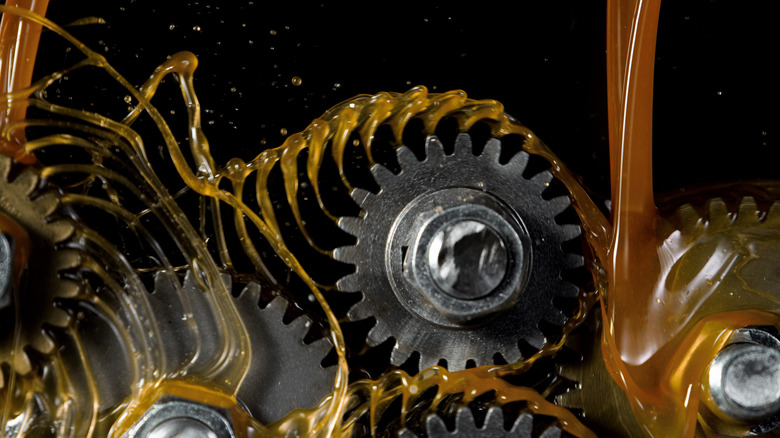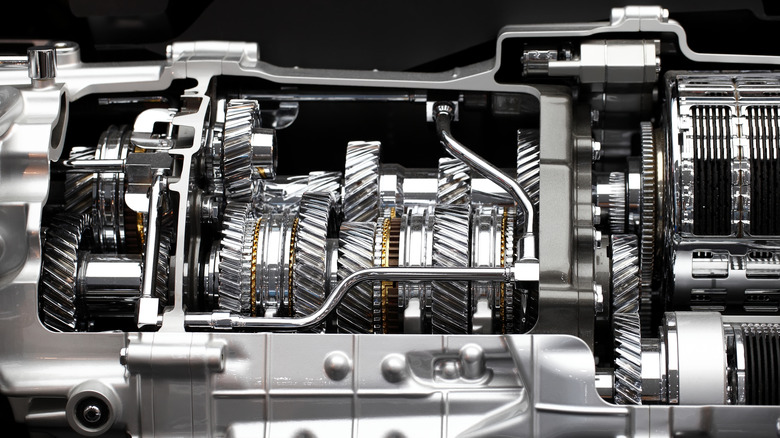Do Automatic Transmission Additives Work? And Are They Worth It?
Every automatic car transmission needs a regular resupply of transmission fluid. This oily fluid is vital for your car's safe and consistent operation, as it lubricates and pressurizes the various moving parts in the gearbox. This, in turn, allows the parts to spin, crank, pump, and so on without grinding against one another and wearing themselves down. You should always have your transmission fluid levels checked when you bring your car in for maintenance, as keeping them topped up is the first and foremost step in preventing your transmission from dying on you.
However, as with pretty much anything that requires a consistent commitment, some products on the market claim they can lessen that burden on you. In addition to regular automatic transmission fluid, various transmission additives are available that, at least allegedly, provide additional benefits and longevity to your car when added alongside the fluid. Do these additives do anything? Should you even bother with them?
What do transmission additives do?
The exact purpose of transmission additives varies from product to product. Still, the overall concept is that mixing them into your regular transmission fluid during a top-up somehow increases the efficiency of your car's functions. For example, some additives claim to soften and condition old, hard pressure seals, while others claim they can completely stop fluid leaks within the gearbox.
Do these additives actually do any of this stuff? They do, at least for a time. When first added to your car, additives can cause a small but noticeable improvement in your car's function, reducing gear slippage, unclogging filters, helping to realign gears, and so on. The problem is that these additives generally don't last very long. They often go stale well before you'd need to top up your regular fluid, breaking down amongst the intense heat produced by your gearbox's components, forcing you to open it up and add them again if you want to keep the effects. This means that additives can actually increase the burden of topping off your fluid instead of reducing it.
Do you need transmission additives?
There are certain circumstances in which you might benefit from using transmission additives, like operating a larger vehicle that regularly tows large loads, especially in extreme weather conditions like heat or snow. If that's the case, some additives might help your car manage the increased engine load and keep chugging along, though you would need to regularly re-add them to your car as they are used up.
For everyday driving in a regular car, though, additives are unnecessary and cannot replace regular preventative maintenance. Forgoing regular automotive checkups in favor of pouring some nondescript goop into your gearbox is just asking for trouble. In fact, depending on the make and model of your car, additives can actually cause direct harm to your gearbox and engine.
Before adding any additives to your car, consult your owner's manual or the manufacturer's website for information on what is and isn't safe to put in there. The odds are good there will be a warning about adding "cleaners, additives, and treatments," which means additives are a no-go from the start. If you're driving in one of the aforementioned strenuous situations, then at least speak to a trustworthy mechanic about what additives you should use, if any.


